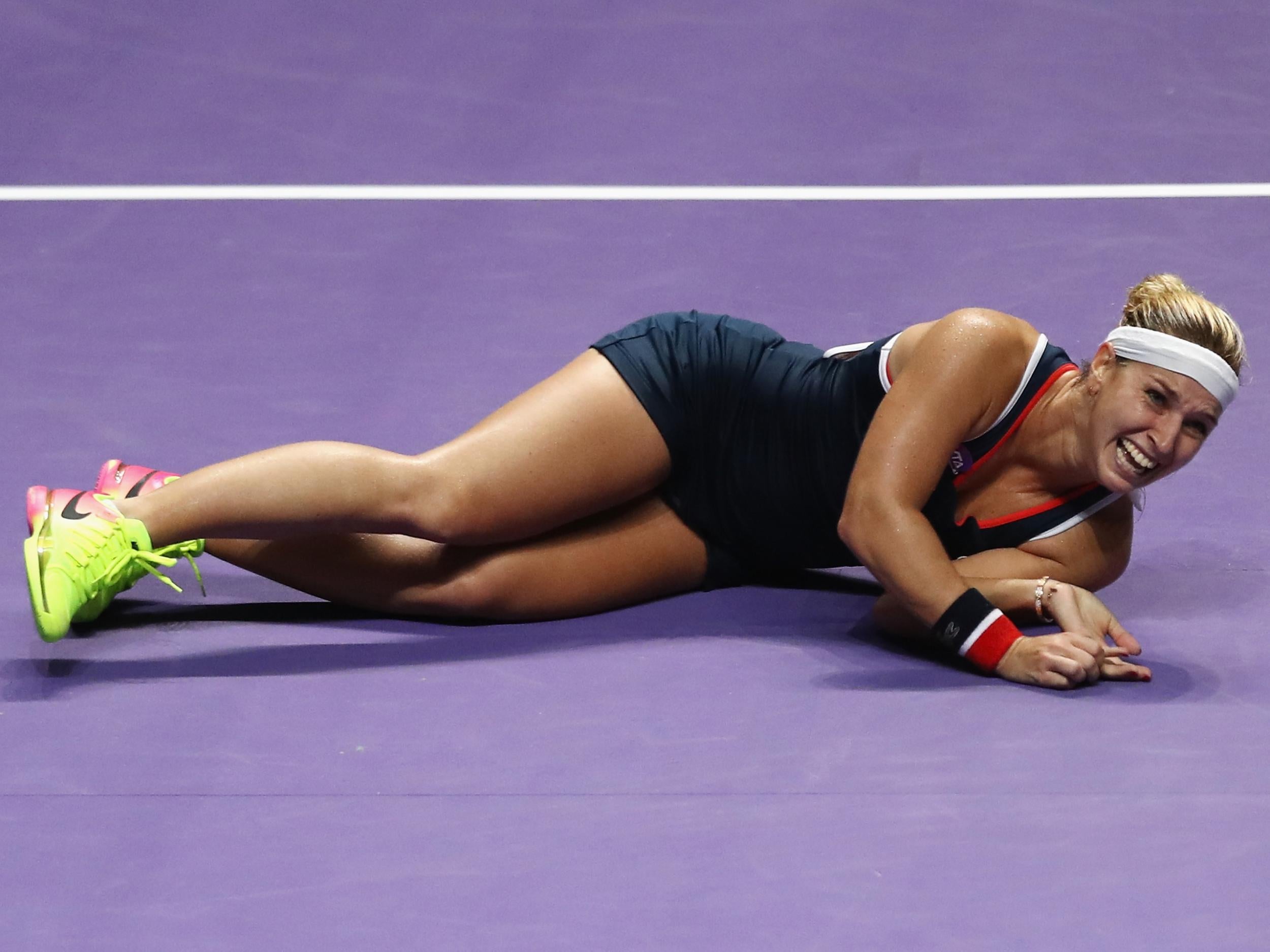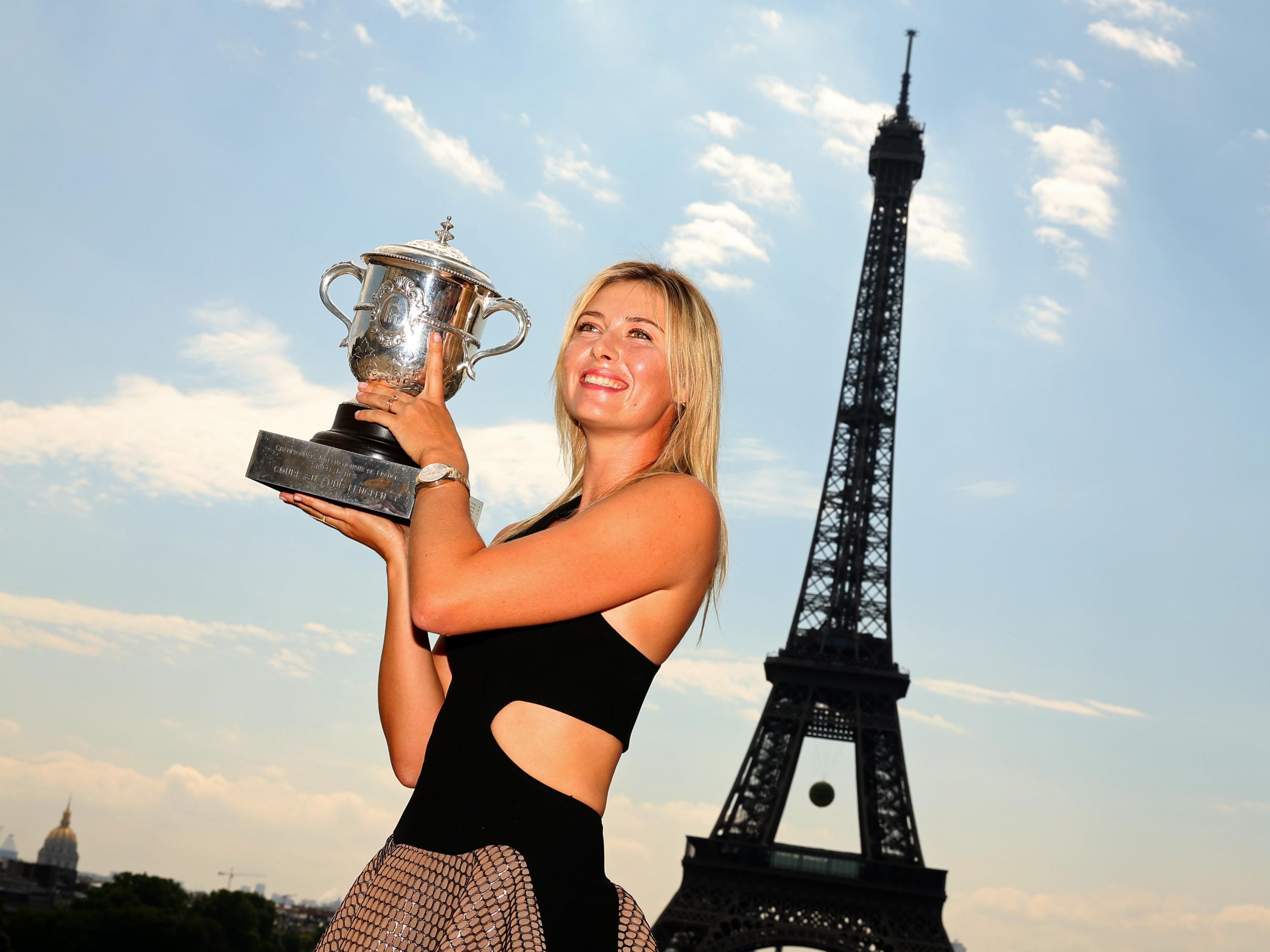Maria Sharapova's comeback from doping ban has been made too easy, says Heather Watson
The British number two has questioned the morality of Sharapova, who was given a 15-month suspension for taking the cardiac drug meldonium, receiving several wildcards
Your support helps us to tell the story
From reproductive rights to climate change to Big Tech, The Independent is on the ground when the story is developing. Whether it's investigating the financials of Elon Musk's pro-Trump PAC or producing our latest documentary, 'The A Word', which shines a light on the American women fighting for reproductive rights, we know how important it is to parse out the facts from the messaging.
At such a critical moment in US history, we need reporters on the ground. Your donation allows us to keep sending journalists to speak to both sides of the story.
The Independent is trusted by Americans across the entire political spectrum. And unlike many other quality news outlets, we choose not to lock Americans out of our reporting and analysis with paywalls. We believe quality journalism should be available to everyone, paid for by those who can afford it.
Your support makes all the difference.The British number two Heather Watson has said that Maria Sharapova’s comeback from a doping ban has been made too easy.
Sharapova’s 15-month suspension for taking the cardiac drug meldonium ends on April 25 and the Russian will play her first match the following day, having been handed a wildcard to the Porsche Grand Prix in Stuttgart.
Her participation in the event has proved controversial because the tournament in fact begins two days before her ban runs out. However Sharapova, who is also sponsored by Porsche, has been guaranteed a delayed Wednesday first-round match to ensure her participation.
Sharapova, 29, has also been given wildcards into the Madrid Open and the Rome Open, which are both ranked as WTA Premier Tournaments. This means that should she perform strongly she will likely be ranked back in the top 100 in time for Wimbledon, the third grand slam of the season.
This has left many players on the tour disgruntled – including Watson.

Speaking after her first round exit from the Miami Open, the 24-year-old acknowledged that Sharapova’s commercial draw is impossible to deny, but claimed that the wildcards she had been presented with were dubious “from a moral standpoint”.
“From the tournament standpoint, she will bring in the crowds and make money,” said Watson. “But, from a moral standpoint, you should have to work your way back up if you've been on a ban. It just seems a bit easy.”
Watson is not the only player on the WTA Tour to express the opinion that Sharapova is being handed an easy ride back to the top of the sport, with former world number one Caroline Wozniacki claiming the Russian’s Porsche Grand Prix wildcard was “disrespectful” to other players.
"Obviously rules are twisted and turned in favour of who wants to do what," said Wozniacki, who lost the last match between the two in 2015.
"I think everyone deserves a second chance... but at the same time, I feel like when a player is banned for drugs, I think that someone should start from the bottom and fight their way back.”
The current world number four, Dominika Cibulková, is another to have publicly criticised the decision, stressing that the sport should maintain a zero-policy approach when it comes to doping, a stance also vigorously supported by Andy Murray.

“I don’t think it is right but what can we do about it? She’s still banned but she can come on site on Wednesday, that’s pretty strange,” Cibulkova said in Miami.
“For me it’s not okay and I spoke to some other players and nobody is okay with it, but it’s not up to us.
“All the people who are taking care of these things should know the rule and do the right thing. It’s not about her, but everyone who was doping should start from zero.”

Sharapova has kept a low profile throughout the growing controversy, although Steve Simon, chief executive of the WTA Tour, defended the manner of her return to the sport.
“There are many instances when the player is not at the tournament until the night before or the morning of the match based upon where they are travelling from, so that is not a factor,” he said.
“They have to be available for their match in the first round. If Maria' s suspension had ended on the Thursday she wouldn't have been able to play, period. Traditionally this tournament plays its first round over three days.”
Join our commenting forum
Join thought-provoking conversations, follow other Independent readers and see their replies
Comments